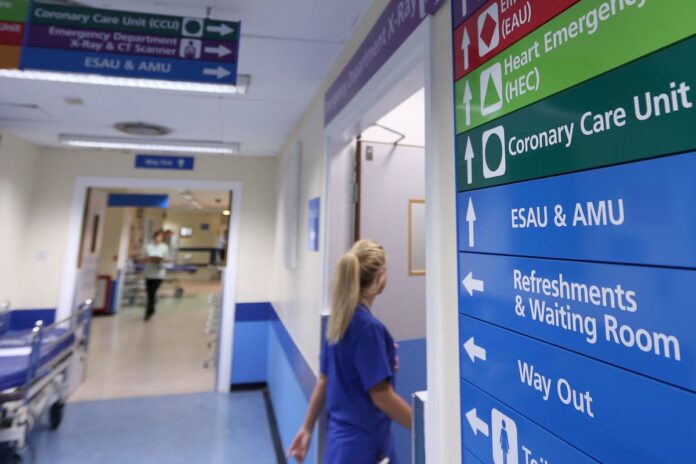Two years ago today, my father died alone and unnoticed in a hospital where he shouldn’t have been. The pain of his passing was worsened by the discovery that simple oversights and organisational inertia prevented him being at home where everyone agreed he belonged.So it is apposite that one of Britain’s most senior emergency doctors has chosen this date to make a damning assessment of hospitals – facilities perhaps wrongly assumed to send people away in a better condition than in which they arrived.Adrian Boyle, new president of the Royal College of Emergency Medicine, likened them to lobster traps. ‘They’re easy to get into and hard to get out of,’ he said.’If social care was able to do its job in the way we want it to, these poor people wouldn’t be stranded in hospital. I have elderly parents and I’m desperate to keep them out of hospital. For someone who is frail, hospital is often a bad place for them. They’re being harmed by being in hospital.’If this is what a senior consultant says publicly, one can imagine what doctors and nurses are saying in private.Dr Boyle is to be commended for his honesty; perhaps understandably, the NHS is too often defensive in the face of criticism. And he is entirely correct that the social care system is not quick enough in taking elderly patients off wards and back into their homes, care homes or palliative care.But I do wish I had known this when dad, who had been walking around the garden and even working on his laptop, was taken into hospital with an infection.(A minor quibble with Dr Boyle’s lobster trap analogy: the hospital my dad was in isn’t particularly easy to get into either, with long queues of ambulances outside.)We were to some extent prepared for dad’s death, because he was losing his battle with cancer. However, his oncologist expected that we would have at least one more Christmas together and preparations had been made for his care at home including the swift delivery of a special bed and various contraptions.We expected him home within days. But with ward visits totally banned because of Covid, and with busy nurses perhaps understandably taking phones off the hook, it was impossible to get information on his condition, still less an update on when he might be able to make the 10-minute journey home. Plans would be put in place, we were vaguely assured.On the television news, there were stories of families in touch with their loved ones through FaceTime, helped by kind nurses, but dad’s phone went unanswered. We later discovered he had lost the strength to lift it and nobody had noticed it ringing.To keep up to speed with all the latest opinions and comment, sign up to our free weekly Voices Dispatches newsletter by clicking here It was only by accident that we got to see him. A nurse who previously treated dad saw him on the ward and, horrified at his condition, called us to say that he was seriously unwell – something that various ‘practitioner leaders’, ‘acute care’ doctors and ‘palliative coordinators’ had not thought to act upon.With sudden urgency, a social care plan was finally agreed so that he could come home the next day. But he never did; within hours, he was dead. The hospital later admitted nobody was with him when he died, nor could they even put an exact time on his death. His status as an end-of-life patient had seemingly come to define his care to the point where he deteriorated, and Covid provided the cover for this not to be noticed or communicated.Yes, we must pay social care nurses more than delivery drivers so that there are fewer staff shortages. But we must also improve the ways in which hospitals and care services work together to get patients off busy wards, and into places where they belong. Sometimes that is not a matter of resources, but of common sense and basic care.
Opinion: I wish I’d known hospitals are like ‘lobster traps’ before my dad died
Sourceindependent.co.uk
RELATED ARTICLES


